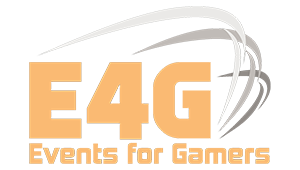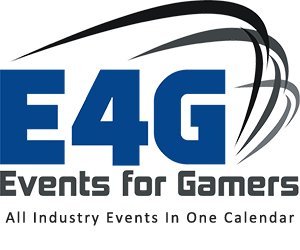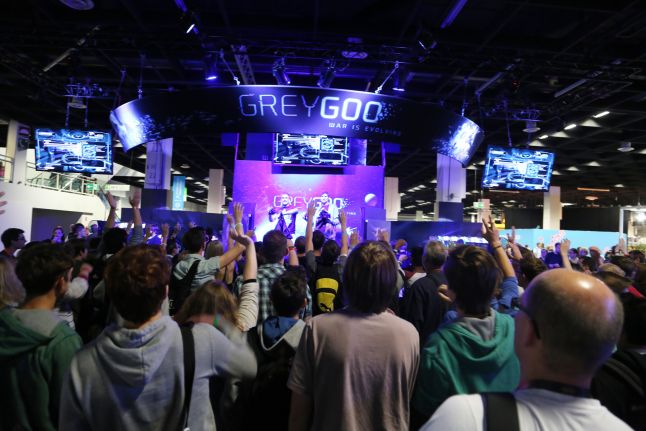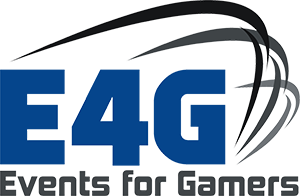Planning for and attending an event requires expensive booth design and maintenance, travel accomodations to get everyone to and fro, and lots of flashy press materials for each day you’re on the show floor. This is especially true for teams that host larger booths and may be at an international show that requires translators. Even if you’re not presenting a game but instead are running a storefront, many of these elements remain the same.
For those who are curious as to how studios go about making the magic of a booth presentation happen, especially if you’ve never visited an event before, here’s a taste of what it takes to pull it off. I’m reflecting on your average booth in the middle of an expansive hall at conventions like Comic-Con, E3, gamescom, and PAX. It doesn’t get any bigger than these events!
Preparing for an event
The length and scope of planning partially depends on the game’s development cycle. Initial preparations can often begin immediately after the previous year’s event concludes. Acquiring tickets and booth space can come early as well, depending on when registration opens up. It’s just as much of a rush for us as it is for attendee to purchase tickets, especially at premium events like Comic-Con and PAX. Publishers who’ve had an event in previous years will have an advantage, however, publishers and companies who are wanting to have a display for the first time in one of the larger halls will have to start at a smaller booth.

At the same time you are locking down attendance details, your team will work with a professional company to design the layout of the booth. This process can last for weeks with multiple meetings to figure out how many game stations are required, the most efficient flow for visitors will be, where staff are positioned, and other logistics. Every square foot is designated for a useful purpose, including the banners, lights, and other stage elements that float above everything. An eye-catching booth presentation is nearly as critical as having a great game to show off in it.
As the event approaches, each team member will be assigned their hotel, flight details, and probably a per diem for general daily expenses and emergencies. There’s nothing like being stranded in a foreign country without local currency to fetch a taxi. Last minute meetings are held to discuss how each day is expected to function. If you’re going with a sizeable team, hopefully a ‘party bus’ will come to pick you up at the office to get everyone to the airport. You may also be part of a secondary studio hub in another city, so it’s quite possible that you’ll travel alone and later meet the rest of your team at the event.

The Preparation Checklist
Here’s a brief checklist that exhibitors may go through before you meet them on the show floor…
- Booth space and attendance registration
- Booth design and visitor flow expectations
- Booth structure setup company acquired and briefed
- Computers, banners, signs, and swag items ordered
- Staffing for demo stations, press room, and booth flow
- Agreements and contracts discussed and signed
- Flight, hotel, train, and other travel registrations
- Press and other accepted attendees notified of attendance
- Press/Community party swag, supplies, and announcements
- The latest game build secured for travel
- A backup game build secured for travel…
- Local stores mapped in case of emergency needs
- Planning and review meetings for all of the above
- Passports, currency, and interntionally accepted phones for when traveling abroad
The fun factor for fans
Since I’m a Community Manager, I have a particularly strong interest in the community having fun playing our game at the booth. I also want to ensure they will be able to take away something that excites them, driving them to perhaps check out the game’s website, perhaps to signup for a beta. In the case of press, it’s sometimes even more important that a good show is put on. The whole point of having a booth after all is to get everyone excited about that next game they should be playing!

Thousands of shirts, party wristbands, oversized swag bags, and other trinkets are purchased to toss out into the crowd. Name badges, markers, tape, paper, and all the secretarial extras are also needed to write booth schedules, hand out party invites, and the inevitable unxpected occurences that more often than not will require triple layers of duct tape. It’s an orchestrated production to keep everyone entertained while we shout through chapped lips and hoarse voices about our cool new product.
Love attending events because of the after-parties? Most of us do too. It’s fun to mingle and network with fellow developers and fans at a party, but someone has to plan that event too! If you’re lucky enough, you’ll find one that has free food and drinks… for the attendees. It’s thousands of dollars for the host of the party, though. It can sometime take months to find a quality venue, caterer, and entertainment that fits within the budget. It’s often an entirely separate orchestra from planning for the main event itself!

Arrival and final booth preparations
If you’ve attended events in the past and have had a good look at the larger booths, you might have noticed strange locked doors and mysterious covered areas that no one but few are allowed to access. This is where we store our personal bags, duct tape for anything that can (and will) go wrong, and food to keep our blood pressure (and sanity) in check. It can also be where we bring in press for private interviews, or simply to rest our feet after standing on the show floor for hours on end.

Arrival at the event is usually a day or two before it begins. You get time to find your hotel, have dinner with the team, and scope out the booth. Final booth setup may also occur the night before, but a lot of the time that takes place the morning of the first event day. Boxes need to be sorted, computers tested, assignments to the team handed out, and where swag will be stored. Even vaccuming and garbage disposal is part of the team’s efforts to prepare. When something unexpected comes up, the team automatically comes together to get it done. It’s also possible to get a quick look at neighboring booths… and their swag. One great perk of being an exhibitor.
If an event is worth your time and energy to spend money to setup and exhibit, it will also have an exhibitor lounge. This is a place to converse with fellow exhibitors while having complimentary coffee, donuts, and other snacks to energize everyone. Trash assistance and evening booth security may also be included, or at least assistance is provided in acquiring these needed services. The last thing you want to be doing is running around town trying to find a Starbucks!

The best part of attending an event
Every preparation up to this point is in anticipation of players having a great time at the show, preferably at your booth. Think about how many months or even years it takes to plan a movie, and how many hours you spend at the theatre to enjoy it. While it’s a lot of work, sweat, blood, and chipped nails, all of it is justified when you see someone coming back through the line day after day to keep playing. It’s all about their fun at your booth standing out amongst the hundreds of others. For many diehard fans, they will even attend the event exclusively to check out your game.
It’s these kind of community members that personally excite me the most to meet. They are the ones that run home to signup for the beta, join the game’s social networks, and immediately e-mail you to inquire about a possible tour of your studio. They may even tweet about developers they met, or post a photo with them wearing the game’s shirt. The stories they share are always interesting to read, regardless of how critical they may be. We need to know what people think when they play our game after all, and sometimes a loud and distracting event isn’t the best way to do that.
After an 8-12 hour day from setup to close, the event may once more provide exhibitors a refreshing cup of coffee, snacks, or most importantly, drink stations strategically placed along various hallways. It’s a nice way to socialize with fellow exhibitors, discuss interesting stories from the day, plan out your evening’s party attendance (if your team is not already managing a party!), and possibly trade extra swag you didn’t give away for that day’s allotment. Everyone on the show floor ends up working together to make the day a success, even though we’re all working independently showing off our own games – even if there are some competing for the same audience.
Booth teardown, and a sigh of success
Early in the morning on the day after the public’s final visit to the show, the show floor will come alive once more with exhibitors breaking down their booths. Appearing out of nowhere, forklifts roar to life between booths to set down packing crates and to collect extra trash. Everyone has to be out of the hall by the next day, so there’s not a lot of time to setup or teardown a booth with walls of computers and other equipment. There’s also always the proverbial extra cable, screw, or missing packing box that throws shipping plans into disarray.
Back at the office, those who were not able to attend are eagerly awaiting to hear how it all went. Social network posts just don’t do it justice. Stories are shared as your hoarse voice tries to project a last bit of excitement amongst a still tired veneer. Your feet and voice may be nearly out of commission, but your spirit to keep the conversation moving forward is brighter than ever. After all, it won’t be long before the next event’s preparations begin!
Visit the original article at Gamasutra.
Written By: Mathew Anderson – Events For Gamers Editor-in-Chief





